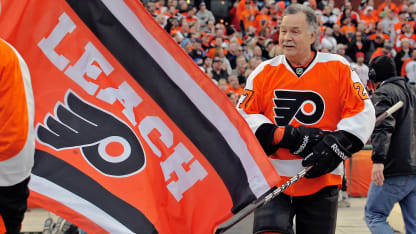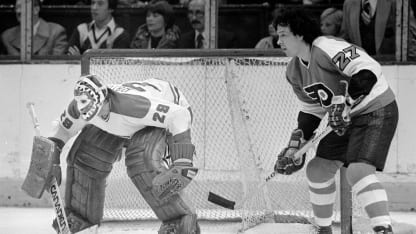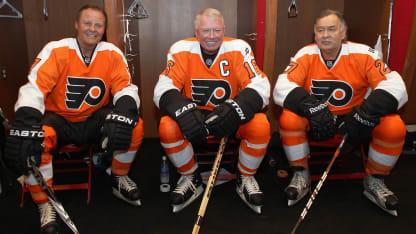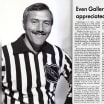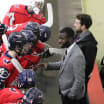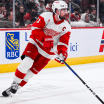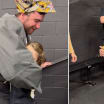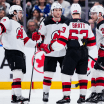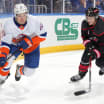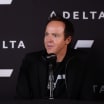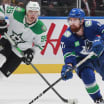Leach said it's still sinking in that he's among the 83 new appointees to the order, which recognizes Canadians for their "dedication to the community and service to the nation."
Leach was one of the NHL's top scorers in the 1970s and early 1980s with 666 points (381 goals, 285 assists) in 934 games with the Flyers, California Golden Seals, Boston Bruins and Detroit Red Wings.
He led the NHL in goals with 61 in 1975-76; won the
Conn Smythe Trophy
as the most valuable player in the 1976 Stanley Cup Playoffs by scoring 19 goals in 16 games, even though the Flyers were swept by the Montreal Canadians in the Final; and scored five goals on seven shots in
Game 5 of the 1976 Semifinals
against the Boston Bruins.
But Canada is recognizing Leach largely for his post-NHL work in "promoting the role of sport in building healthy communities," part of the message he delivers in talks to the nation's Indigenous youth and others about life choices and substance abuse.
"I dedicate this Order of Canada to all our First Nation youth and everybody that's struggling in our First Nation world and to everybody that's struggling, really," said Leach, who is Ojibwe. "Hockey is a very, very small part of my life circle. I'm always going to be known as Reggie Leach the hockey player, but I'm a lot more than that today."
Leach has been on an accolade roll lately. He received an honorary doctorate from Brock University in St. Catharines, Ontario, in June; he recently spoke at the United Nations about the importance of sports for aboriginal people worldwide; and he was inducted into the Philadelphia Sports Hall of Fame in November.
Once he's formally invested at an upcoming ceremony, Leach will be one of 7,634 Order of Canada recipients since the award's creation in 1967 as part of the country's centennial celebration.
He'll also be among more than 30 hockey players in the order, a group that includes Hockey Hall of Famers
Wayne Gretzky
,
Mark Messier
,
Bobby Orr
,
Jean Beliveau
,
Gordie Howe
,
Guy Lafleur
,
Bobby Hull
,
Mario Lemieux
,
Willie O'Ree
and his longtime Flyers linemate
Bobby Clarke
.
"Now they're hanging around with me," Leach said with a laugh. "I'm very happy to be in the company of all these guys."
Leach, 69, has never left Clarke's wing. The two combined with forward
Bill Barber
to form the "LCB Line" that helped power the Flyers to their second Stanley Cup in 1975.
